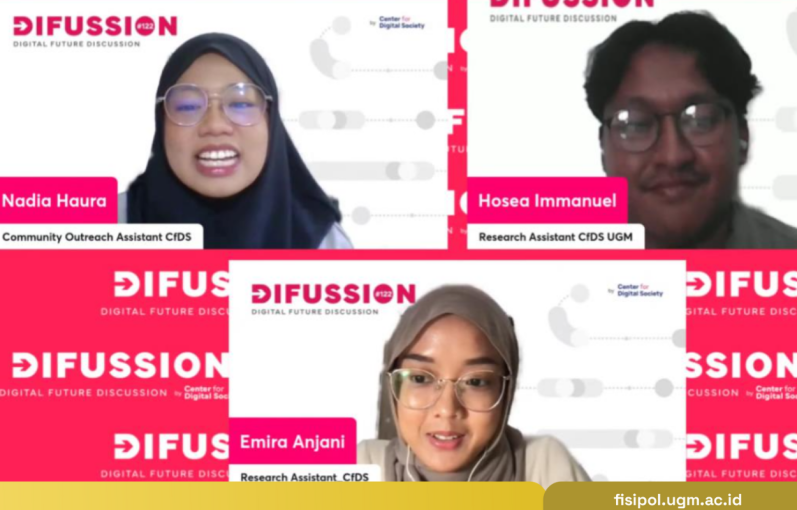
The Indonesian government initiated the implementation of AI in the public sector by issuing the Ministry of Communication and Information Technology (Menkominfo) No. 9 of 2023 on the ethics of artificial intelligence. However, according to Hossea Immanuel, research assistant at CfDS UGM, the initiative still faces some challenges due to inadequate digital infrastructure.
“There are still problems regarding AI implementation in Indonesia, such as the ransomware attack on the national data center last year. Of course, this contradicts the purpose of implementing AI,” said Hossea in his presentation.
AI’s ability to analyse multiple variables simultaneously quickly can minimise human error. In the context of digital infrastructure services in the public sector, improving digital public infrastructure (DPI) quality and accuracy is a significant issue. Given that DPI is a digital-based public administration system with a development focus on social and economic factors. Therefore, based on the DPI conception, Indonesia needs to reconstruct a secure, interoperable digital system that can support efficient data integration in various public sectors.
For Hossea, the government must be transparent in the program’s development process, preparation, and evaluation. This accountability can be done through policy innovations based on monitoring and evaluation. In addition, it is also necessary to collaborate with the private sector, academic institutions, and civil society in the development and application of AI technology to align with public needs and values.
By improving public accountability, Indonesia can strategically build a safe and sustainable digital infrastructure. Moreover, it ensures that the application of AI improves bureaucratic efficiency and provides tangible benefits to society. With an inclusive and collaborative approach through civil society partnerships, Indonesia can optimally utilise AI that positively impacts the public sector.
